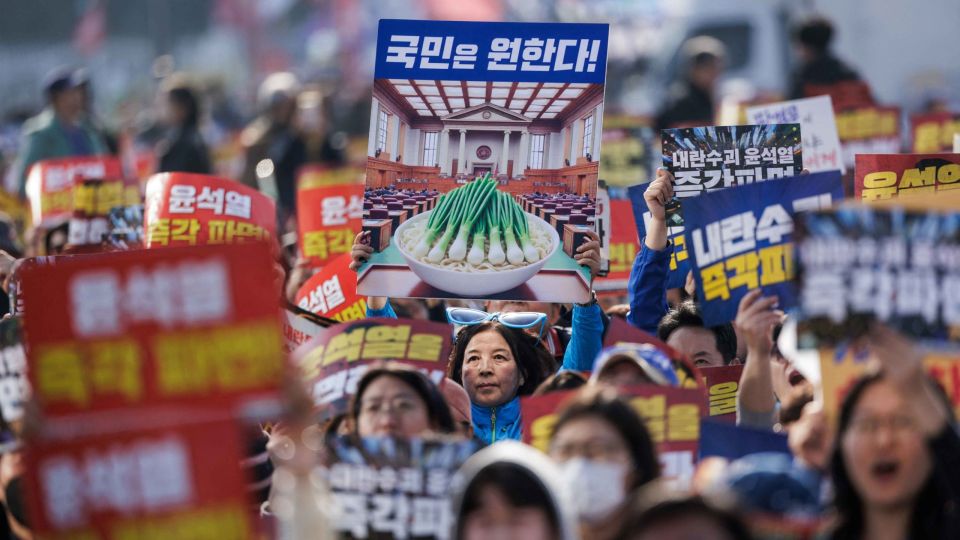March 24, 2025
SEOUL – South Korea faces a critical week, with landmark rulings expected to determine the fates of Prime Minister Han Duck-soo, main opposition leader Lee Jae-myung and possibly President Yoon Suk Yeol, which could mark a major political turning point.
Suspended Prime Minister Han’s impeachment verdict is set for Monday at 10 a.m., the appeal verdict on main opposition party leader Lee on Wednesday, and the verdict date on suspended President Yoon is likely to be announced early in the week.
While the Constitutional Court has not yet announced the date for Yoon’s verdict, given that it recently cleared major cases and the precedent of presidential impeachment rulings typically falling on Fridays, the court could deliver Yoon’s ruling this Friday. The court usually announces the verdict date two to three days in advance.
Legal circles believed that the court’s impeachment verdict on Han could be a “preview” of President Yoon Suk Yeol’s impeachment ruling.
Both Han and Yoon were impeached over the alleged unconstitutionality of the procedures during the martial law declaration on Dec. 3.
But what sets Han’s case apart from Yoon’s lies in the factors surrounding the emergency Cabinet meeting held on Dec. 3 at night, before the declaration.
While Han merely convened the meeting, Yoon is accused of pushing through with the martial law despite the Cabinet’s opposition, concluding the meeting in five minutes.
On Dec. 27, the Assembly passed the impeachment motion on Han for several other reasons, including his recommendation that the president veto a special prosecutor investigation into first lady Kim Keon Hee and his refusal to appoint Constitutional Court justices.
Some experts believe that unless Han is found to have actively abetted the martial law plan, the ruling may not delve into its constitutionality, potentially limiting its relevance to Yoon’s case.
During Han’s hearing on his impeachment on Feb. 19, Han stated that he had “no prior knowledge of President Yoon’s plans” and did his “best to persuade him to reconsider.” He also actively denied his involvement in “any military mobilization.”
While both ruling and opposition parties expect Han’s impeachment to be dismissed, the ruling People Power Party sees a dismissal as paving the way for Yoon’s acquittal. In contrast, the main opposition Democratic Party of Korea believes the Constitutional Court might strike a political balance by upholding Yoon’s impeachment.
While it is possible that Yoon’s final verdict will be out on Friday, this week is poised to become a defining moment in South Korean democracy for another reason.
Besides the ruling on Han and Yoon, Lee’s appeal verdict on the election law case is set for Wednesday.
If all three rulings occur in the coming week, they are expected to reshape the nation’s political landscape. Early presidential elections could become a real possibility if Yoon is ousted from office and the election would see a change in its race if Lee is convicted.
By law, an early election must be held within 60 days following a president’s removal. Though Lee is, for now, the Democratic Party’s most likely candidate in an early presidential election, his legal troubles could disqualify him from public office.
The rulings on Yoon and Lee could lead to four distinct scenarios.
First, if Yoon is removed and Lee gets a lighter sentence in Wednesday’s appeal verdict, the May presidential election is most likely with the opposition leader becoming a strong contender.
Second, Yoon’s ouster and Lee’s prison sentence, after being convicted, would place a significant political burden on the opposition party. Lee could appeal to the Supreme Court, but running with such a legal risk ahead of a potential presidential election would pressure him and his party, possibly pushing them to find an alternative.
Third, if Yoon is reinstated and Lee receives the lighter sentence that allows him to retain his parliamentary seat, the confrontation between the two is likely to intensify even further — but without any election ahead.
Fourth, Yoon’s return to office and Lee’s prison sentence would be the worst scenario for the opposition leader, with the ruling party most likely to capitalize on the situation by labeling him a criminal.


